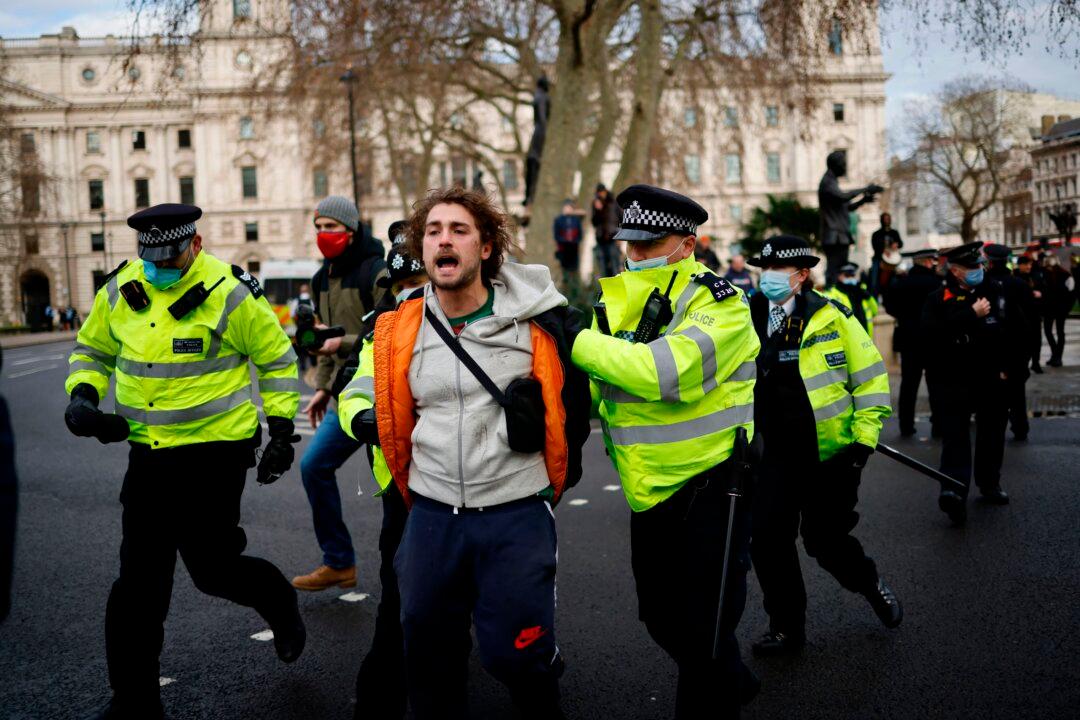Police should not have been given the power to hand out COVID-19 fines up to £10,000 ($11,670), a British parliamentary committee has said.
The UK government announced in August 2020 that those who organize or facilitate “illegal raves,” unlicensed music events, or other “unlawful gatherings” of over 30 people in England could face a “fixed penalty notice” of up to £10,000.





